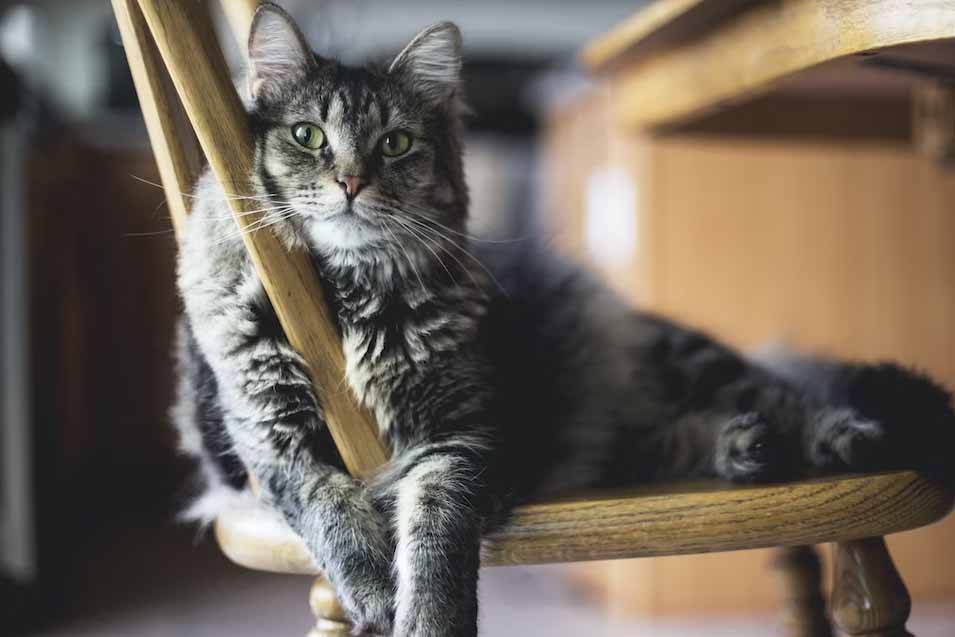From the mysterious beauty of a Siamese to the pint-sized cuteness of a Munchkin cat, there’s a feline friend out there for everyone. Nothing could be more enjoyable than feeling a fuzzy Persian rubbing up against your legs when you return home from work, or settling a big purring Maine Coon on your lap while you watch TV. If you love a cat, it’s only natural that you would want to keep them spry and fit all throughout their lifespan, from when you bring them home as a tiny kitten to when they’re a lazy senior sunbathing on a perch.
But how does a cat’s needs differ throughout their lifespan? How can you ensure that your furry loved one remains in peak condition no matter their age? Today we’ll discuss how the health requirements of a cat shift as they grow, as well as how you can collaborate with your local vet to create a wellness plan for the four-legged apple of your eye.
Cats go through similar life phases as humans
Just as humans have different life phases, cats grow from tiny neonates to senior citizens, with distinct needs throughout these separate eras of development.
A healthy, well-cared-for indoor cat can expect to live between 10 to 15 years, with some even reaching the venerable age of 20; outdoor cats generally live much shorter lives due to the many dangers of living in the wild, such as parasites and predators.
From birth to age one, a cat is considered a kitten. Like a baby, they will have immature immune systems and will require a variety of vaccinations to keep them in good health. They also may suffer from parasites that are inherited from their mother or picked up from their environment – a particular problem in muggy Tennessee – so you should expect to get them dewormed to prevent serious issues. Also, you will want to have them spayed or neutered anywhere at anywhere between four to six months of age; new medical guidance encourages you to wait a bit longer so that they get the full benefit of their sex hormones.
After a relatively short adolescence – about six months – your kitten will be a full grown cat. They will need less calories as they are no longer growing, so you’ll want to switch them to adult cat food to prevent obesity. It’s important to stay on top of dental care now that they have all their adult teeth, which includes brushing their teeth and scheduling them for regular teeth cleanings; this will prevent gum disease, which can be painful and lead to heart disease. Be sure to stay on top of tick and flea prevention, even for indoor cats.
Around seven years old, your cat will officially become a senior, and it will be essential that you schedule regular vet visits to stay on top of any developing health conditions. Your cat might start to slow down around this time, so you may need to change their environment to help them stay comfortable; for example, you may want to remove high perches that they can no longer safely reach, or move their litter box closer to their favorite sleeping spots so they are less prone to accidents. Your vet will closely monitor their blood work to watch for organ issues, and they may need medications to stave off age-related diseases. Careful attention to your cat’s health needs will make sure that they can stay as active as possible for as long as possible, and that they will have a dignified and painless end of life.
For all stages of your cat’s life, your local animal clinic is a partner in good pet health
It’s easy to get caught up in your own life and forget that your cat needs regular vet check-ups to stay healthy; this is an especial problem for feline family members, because they tend to hide illnesses until they become incredibly sick. As such, make it a habit to schedule twice-yearly appointments even when your cat is perfectly fine, with more visits should your pet show signs of illness.
During these visits, your cat will get any necessary vaccinations and be thoroughly checked over for developing illness; he or she may also have blood drawn for a full blood panel, which can identify any problems that may be arising as they age. Bring along any questions or concerns you may have, including any changes in behavior, appetite, or bathroom habits, as these may clue the doctor into issues that need to be investigated further.
Preventative care is essential not just to avoid pricey vet bills, but also to ensure that your cat stays active for as long as possible and does not experience any discomfort. Throughout every phase of your feline’s life, be sure to consult regularly with an experienced veterinarian, as this can mean the difference between a happy cat and a silently suffering kitty.






